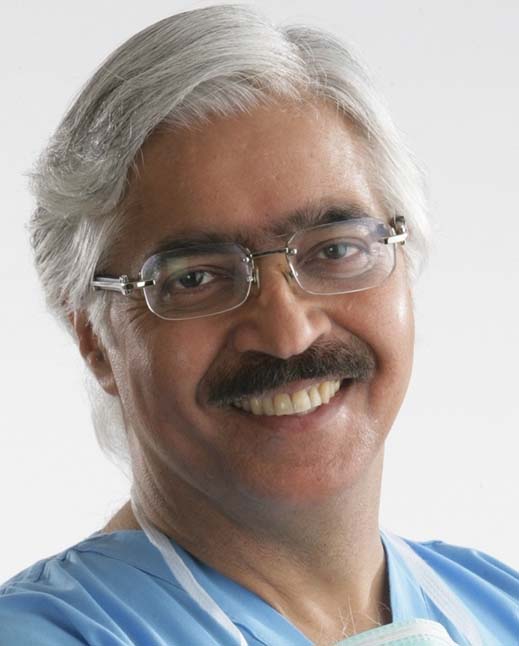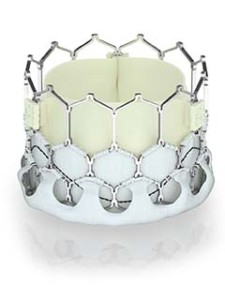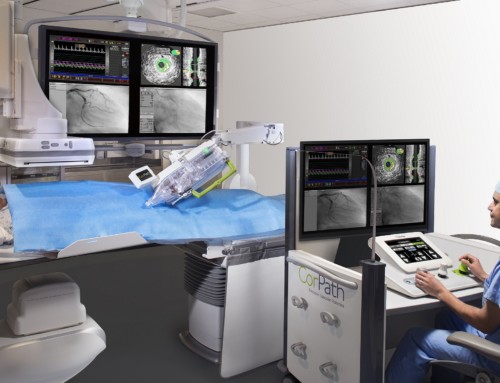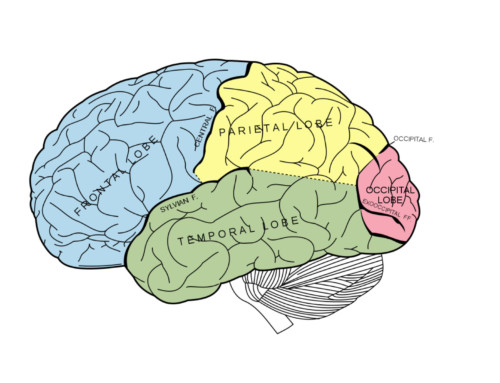
Ashok Seth
The Myval transcatheter aortic valve implantation (TAVI) system, designed and manufactured by Meril Lifesciences in India, recently received the CE mark for the management of severe aortic stenosis. In this commentary, Ashok Seth discusses his experience with the Myval system, and the recent MyVal-1 study, one-year data of which he presented as a principal investigator at EuroPCR 2019 (20–24 May, Paris, France).
The Myval valve is a next-generation balloon expandable heart valve made up of a nickel cobalt alloy frame and bovine pericardium leaflets. The valve has a unique hybrid honeycomb cell design, with open cells on the upper half to ensure unjailing of the coronary ostia and closed cells on the lower half for high radial strength. Upon crimping, this design gives a unique “dark and light” band pattern, visible under fluoroscopy, ensuring accurate valve positioning and orthotopic deployment.
Ensuring easy delivery of a transcatheter heart valve
The valve comes with an internal polyethylene terephthalate (PET) sealing cuff and an external PET buffing to minimise paravalvular leaks. This CE-approved valve comes in seven sizes from 20mm–29mm. The Myval is directly crimped on a stent balloon delivery system, which has a stopper at either end to prevent valve movement and migration during delivery. There is no sheath over the valve, hence the valve delivery system behaves like a direct stent implantation system without the need for multiple steps and adjustment. The Myval goes through a 14F python lubricated introducer sheath for percutaneous access of the crimped Myval.
The Myval system is an innovative step towards treating severe aortic stenosis. A major benefit of this technology is the simplicity of the navigator delivery system, with its operator friendly rotatory handle. I have personally experienced the ease of navigation in challenging anatomies due to its hi-flexion distal shaft. It is intuitive and simpler to use, similar to implanting a coronary stent. In addition, the 14F python sheath also enables full retrieval of the Myval crimped balloon catheter.
MyVal-1 study met its primary endpoint

MyVal
TAVI is now a well-established treatment for aortic stenosis, and is approved as an alternative to surgical aortic valve replacement in high-risk and intermediate-risk patients. The CE and CDSCO-India approval for Myval for its use in TAVI was based on successful results from the MyVal-1 study.
MyVal-1 is a first-in-human, prospective, multicentre, single-arm, open label study of Myval for the treatment of severe symptomatic native aortic valve stenosis, which enrolled 30 patients and intends to follow-up for five years.
Myval received CE approval in May 2019. Results of the one-year MyVal-1 study, which I presented on behalf on the study investigators, at a late-breaking trial session at EuroPCR 2019, showed 100% device success and a zero device-related mortality rate. There were no new pacemaker implantations, no strokes, and no paravalvular leaks observed in the trial patients.
Furthermore, echo parameters were maintained at 12-month follow-up, and there was a marked improvement from baseline to 12 months in quality of life scores, as measured by the six-minute walk test, New York Heart Association (NYHA) functional class and the Kansas City Cardiomyopathy Questionnaire score. At the time of the valve implantation, 70% patients were NYHA class III/class IV. At one-year, 80.77% of the patients had improved to NYHA class I, and the remainder to NYHA class II.
Based on these encouraging first-in-human results, further studies are being planned in a larger population and differing geographies for longer durations of time.
This device is not approved for sale in the USA.
Reference
- Seth A. One-year clinical outcomes of India’s first indigenously designed and manufactured TAVR system. Presented at EuroPCR 2019
Ashok Seth is chairman of Fortis Escorts Heart Institute in New Delhi, India.





